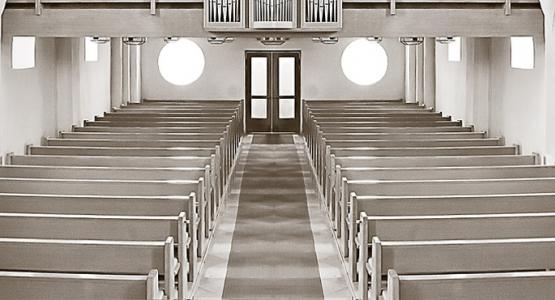
Advantages and Disadvantages of Second Career Pastors
Story by Edwin Manual Garcia
Second-career pastors are becoming more common across the North American Division and the Columbia Union Conference. In fact, about one-third of students enrolled at the Seventh-day Adventist Theological Seminary in Berrien Springs, Mich., are studying to be pastors after leaving another career, says Ivan L. Williams, Sr., director of the division’s Ministerial Association.
The number of these non-traditionally trained pastors is increasing as fewer undergraduate students study theology and newer converts abandon their careers to enter the ministry.
Gene Donaldson, ministerial director and chief recruiter of pastors for the Allegheny East Conference, says at least a quarter of the 120 full-time pastors from the conference came from different careers, and they are enriching their churches, a similar statistic to other conferences.
He appreciates their maturity level. Most people who become second-career pastors “are usually very clear about the fact that they feel the Lord has called them,” Donaldson says.
Plus, he added, if they’re leaving another profession, “they are taking a risk; therefore, they are purpose-driven and focused as they feel a high level of commitment.”
He prefers to hire second-career pastors who were successful in their first career. Also, management experience is a huge plus because those skills directly transfers to the ministry. If the new pastor didn’t grow up Adventist, or hasn’t been an elder or deacon, the conference is more likely to place him or her with a senior pastor to learn the nuances of Adventism.
 Read these articles from the March/April 2020 Visitor:
Read these articles from the March/April 2020 Visitor:
- Second-Career Pastors Change Course for Ministry
- Editorial: From Police Officer to Pastor
- 2021 'Year of the Bible' Devotional Book Call for Submissions & Guidelines
- Advantages and Disadvantages of Second-Career Pastors
- Columbia Union Members Plant 65 Churches in 2019
- Fred Shoemaker: Nudging Toward Adventism
- Kettering Adventist HealthCare realiza cambios clave en el liderazgo (Leer otros artículos en español!)
- March Calendar Tips: Clear the Clutter
- Victor is Back! Can You Find Him in the Issue?
- Why Cleaning is Good for Your Health

Add new comment